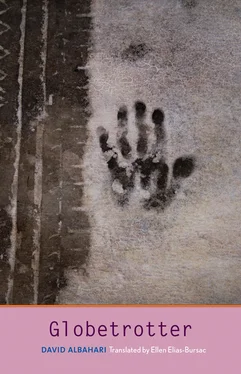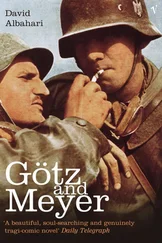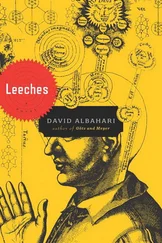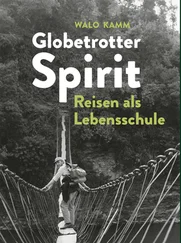Daniel Atijas placed his finger on the Art Centre and drew it along Saint Julian Road all the way to a place, roughly between Wolf and Wolverine Streets, where, he said, the trail that led to the summit of Tunnel Mountain began. Before that, however, he said, we had to make sandwiches. Ivan Matulić’s grandson already had sandwiches and a plastic bottle of water in his backpack, so it was up to me to go and get four rolls, a handful of thinly sliced Trappist cheese, and several pats of butter. While I was spreading food on the gaping halves, I remembered how we had gone the first time on Sunday a week ago to walk along the river and have a look at the hoodoos, and how Daniel Atijas had rolled their name around in his mouth as if chewing gooey caramel. I hadn’t told him then that some Native Americans believed they were actually tepees, Indian tents in which dwelt evil gods, but it suddenly occurred to me that he had been talking at that point about coincidence in nature in an entirely different way, not praising it, as he had done just now, which had also surprised me, because I had been convinced, who knows why, that Daniel Atijas possessed a remarkably firm and precise system of intellectual references, a system in which there were no errors, or at least the likelihood of any coming up was minimal. I was so caught up in these thoughts that Ivan Matulić’s grandson had to tap me on the shoulder to get my attention. He was still standing by the table, and now and then, with one hand or both, he’d lean on it. He asked what I wanted to drink during our walk: water or, like Daniel Atijas, a soda? We may, I said then, possibly be overdoing it with all these preparations, since I know the trail, and all we need for our climb to the top of Tunnel Mountain is some thirty minutes, forty at the outside, certainly less than an hour.
True, said Daniel Atijas, this is not a great distance; he knew that the whole trail was about a mile and a half long and that the difference in elevation was about nine hundred feet, but his idea hadn’t been so much about the walking or hiking, and even less about the distance and the effort, as about the possibility of spending the whole day in nature having peaceful conversations the likes of which he would not be able to enjoy once he went back, so soon, to his country. I couldn’t say anything to him about that; he was leaving, after all, and I was staying; so I told Ivan Matulić’s grandson to take orange juice for me. Ivan Matulić’s grandson was a little surprised and asked me whether I was certain about the orange juice, because it always gave him indigestion, and he could drink only two or three sips, sometimes not even that much. Each of us is different, I told him, and what makes one person weak might make someone else very strong. Ivan Matulić’s grandson shrugged, turned, and walked away. Daniel Atijas called after him to remind him to wait for us out in front of the store. He himself went on wrapping sandwiches in napkins and packing them in my backpack. He did it carefully and skillfully, as if he had been doing nothing but that his entire life. I don’t remember that I had ever seen him, before that, more absorbed, given over to something extremely unimportant; and as if he had read my thoughts, he said that the beauty of life is hidden in the fullness of every moment, and that every moment should be lived as if there were nothing else. He wrapped the last sandwich, placed it with the others, downed another swig of coffee, and said it was time for us to go.
I put on my backpack and turned, then turned again to take a careful look at the surface of the table, checking to see whether we’d forgotten anything. The waiter raised his hand and waved, but when I went to wave back, he had bent over and was brushing crumbs off his pants. I hurried after Daniel Atijas, left the building, and turned the corner, and then I saw them: they were standing facing each other, eye to eye; Ivan Matulić’s grandson was speaking steadily, with no vehemence, and Daniel Atijas’s left hand rested on his right shoulder. Perhaps I should have turned around then and left, but I went on walking toward them and even pretended not to notice. Sometimes, I told Daniel Atijas not long after we’d met, walking is only a way not to stand still, and as I walked over to them I felt as if I were standing, as if I’d never get there. Ivan Matulić’s grandson was the first to notice me, and then Daniel Atijas turned. He had just been talking, he said, about how we mustn’t allow any experience to get the better of us, and how in everything we must seek something to hold on to, a handhold or a foothold, no matter how slippery the path might be or how weak the hand or foot. The whole time he wasn’t taking his hand off the grandson’s shoulder, and he was even squeezing it gently, as I could see, with his fingertips. I looked at my watch but didn’t see it. We’re running late, I nevertheless said, in an artificial and alarming tone, as if it were nearly nightfall. Daniel Atijas and Ivan Matulić’s grandson finally moved apart, and Ivan Matulić’s grandson thrust his hand into the backpack at his feet, took out the bottle of orange juice, and handed it to me.
I took it carefully, as if it were a hot iron, put it in my backpack, tightened the cord and tied it in a double, lopsided bow, and finally said I was ready for us to go. All of us are ready, said Daniel Atijas, and suddenly a thrill shot through me as if I were part of an expedition to the North or South Pole. I could see it all so clearly: Ivan Matulić’s grandson and Daniel Atijas and the people who, having finished with their breakfast, were leaving the dining hall and crossing the street and the whole Centre and myself, all of whom I saw from behind, as if I were watching everything from a foot or so behind my back. There was a harsh light emanating from everything, but the light didn’t disperse or spread; it remained as an inch-or-two-wide edging around the contours of the bodies and buildings, reminding me of stories of auras and photographs of plants surrounded by a golden glow. Daniel Atijas and Ivan Matulić’s grandson had already walked away, and all I could do was take several unsure steps, but then I had to stop. I needed to go up the dozen steps that led to Saint Julian Road, but I didn’t dare move my foot forward and guess where each step ended and the contour of its glaring edge began. I was convinced that if I took just one more step, I would fall, perhaps even tumble into the crack between the real edge and the glaring edge, and no one would be able to fish me out, as if I’d fallen into a crack in a glacier. I took this as the last warning to abandon the hike up Tunnel Mountain and opened my mouth to shout, to call Daniel Atijas and Ivan Matulić’s grandson to come back, but when I looked up, I could see that they had already made it to the curve in the road, and, engrossed in their conversation, they couldn’t have cared less where I was.
I cannot pinpoint exactly what it was I was feeling then. Words like “rage” or “letdown” or “desolation” express nothing to me. Besides, I had no feeling then for words: I was staggering under the weight of pure emotion. Whatever the case, just then the harshly glaring auras faded, and I could mount the stairs and hurry after Ivan Matulić’s grandson and Daniel Atijas, that is, hurry to the place where they’d disappeared from sight. And while I was trotting along and my backpack was bouncing on my back, I swallowed saliva full of bitterness, as if I had been chewing a bad-tasting plant from the plains. When I caught up to them, I was so out of breath that all I could do was listen to what they were saying. Only Daniel Atijas was speaking. He was talking in a didactic voice without pause, as if reciting something he knew by heart, and Ivan Matulić’s grandson was nodding in assent, though it was immediately clear to me that he gave no credence to what Daniel Atijas was saying. By all indications they were resuming the conversation that had started out in front of the store, or who knows when, for as time passed I was increasingly convinced that Daniel Atijas was leading a different life from the one I had allotted him or attempted to define. At one moment, a few days ago, I had been so certain that he was spending nearly all his free time with me, that he was every bit as devoted to me as I was to him, but now I knew that my attempts to take over his life completely had not worked and, furthermore, that he may not even have noticed what I was up to, and that, in other words, he had never for a moment seen in me someone who was different in any way from the other people he met at the Centre.
Читать дальше







![David Jagusson - Fesselspiele mit Meister David [Hardcore BDSM]](/books/486693/david-jagusson-fesselspiele-mit-meister-david-har-thumb.webp)




